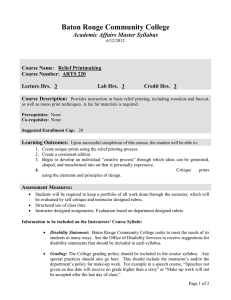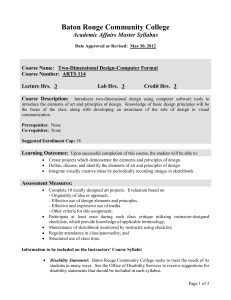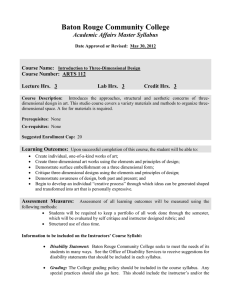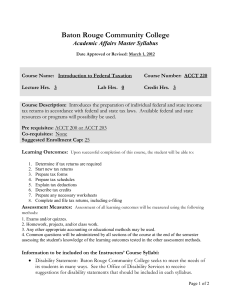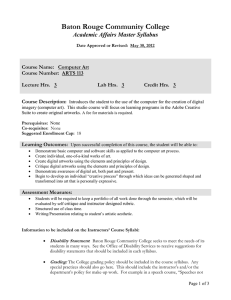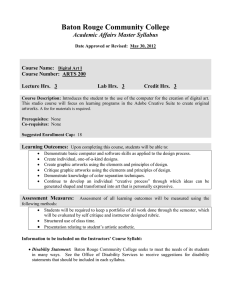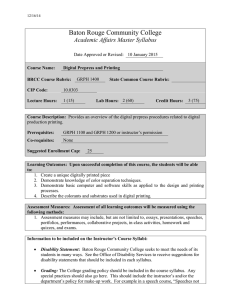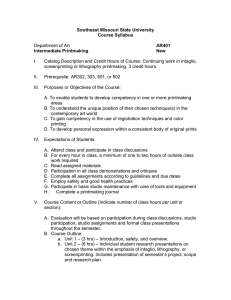Baton Rouge Community College Academic Affairs Master Syllabus
advertisement
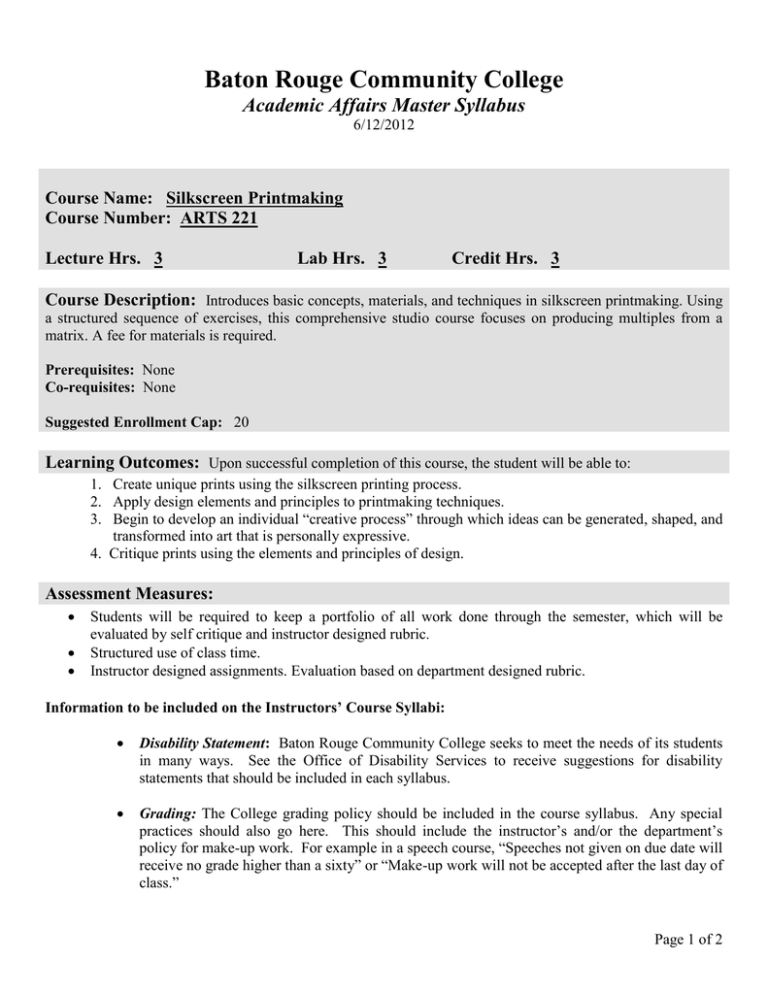
Baton Rouge Community College Academic Affairs Master Syllabus 6/12/2012 Course Name: Silkscreen Printmaking Course Number: ARTS 221 Lecture Hrs. 3 Lab Hrs. 3 Credit Hrs. 3 Course Description: Introduces basic concepts, materials, and techniques in silkscreen printmaking. Using a structured sequence of exercises, this comprehensive studio course focuses on producing multiples from a matrix. A fee for materials is required. Prerequisites: None Co-requisites: None Suggested Enrollment Cap: 20 Learning Outcomes: Upon successful completion of this course, the student will be able to: 1. Create unique prints using the silkscreen printing process. 2. Apply design elements and principles to printmaking techniques. 3. Begin to develop an individual “creative process” through which ideas can be generated, shaped, and transformed into art that is personally expressive. 4. Critique prints using the elements and principles of design. Assessment Measures: Students will be required to keep a portfolio of all work done through the semester, which will be evaluated by self critique and instructor designed rubric. Structured use of class time. Instructor designed assignments. Evaluation based on department designed rubric. Information to be included on the Instructors’ Course Syllabi: Disability Statement: Baton Rouge Community College seeks to meet the needs of its students in many ways. See the Office of Disability Services to receive suggestions for disability statements that should be included in each syllabus. Grading: The College grading policy should be included in the course syllabus. Any special practices should also go here. This should include the instructor’s and/or the department’s policy for make-up work. For example in a speech course, “Speeches not given on due date will receive no grade higher than a sixty” or “Make-up work will not be accepted after the last day of class.” Page 1 of 2 Attendance Policy: Include the overall attendance policy of the college. Instructors may want to add additional information in individual syllabi to meet the needs of their courses. General Policies: Instructors’ policy on the use of things such as beepers and cell phones and/or hand held programmable calculators should be covered in this section. Cheating and Plagiarism: This must be included in all syllabi and should include the penalties for incidents in a given class. Students should have a clear idea of what constitutes cheating in a given course. Safety Concerns: In some programs this may be a major issue. For example, “No student will be allowed in the safety lab without safety glasses.” General statements such as, “Items that may be harmful to one’s self or others should not be brought to class.” Library/ Learning Resources: Since the development of the total person is part of our mission, assignments in the library and/or the Learning Resources Center should be included to assist students in enhancing skills and in using resources. Students should be encouraged to use the library for reading enjoyment as part of lifelong learning. Expanded Course Outline: I. How to prepare A. Taking care of a screen B. Cleaning up II. How to expose a screen A. Drawing or digitally printing onto acetate B. Coating the screen C. Safely exposing the screen III. How to know your printing surface A. Qualities and characteristics of various papers B. Alternative printing surfaces C. Textiles IV. How to make multiple color prints. A. Using registration to line up the matrixes B. Color concepts in printmaking: light to dark V. How to use the principles of design to find and create interesting compositions. A. Balance – symmetrical/asymmetrical/imbalance B. Methods of creating a focal point or emphasis C. Scale and Rhythm VI. How to speak about your own work and the work of others from a critical point of view. A. The artist’s statement B. Form and content Page 2 of 2
